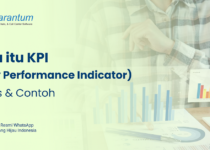Three Essential Human Skills to Thrive in the AI Era
Every workplace is undergoing a seismic shift. With artificial intelligence now a permanent fixture in nearly every industry, the question is no longer whether AI will change the way we work — it’s how we’ll adapt to thrive alongside it. According to The Future of Jobs Report 2025 by the World Economic Forum (published on January 7, 2025), success in this new era requires a delicate balance between human ingenuity and AI’s transformative power.
While AI is rapidly automating tasks and enhancing productivity, it cannot replace the uniquely human skills that drive creativity, adaptability, and collaboration. Let’s explore the three most essential human skills everyone needs to develop, and practical ways to leverage AI tools to enhance them.
1. Analytical Thinking: Making the Complex Simple
AI excels at processing vast amounts of data, but humans are unmatched in their ability to derive meaning and make decisions. Analytical thinking remains the most sought-after skill for navigating complex problems, identifying patterns, and crafting innovative solutions.
How to Develop Analytical Thinking with AI:
Leverage tools like Gemini 1.5 Experimental Deep Research to dive into data, uncover trends, and generate insights faster than ever. For example, Gemini can analyze market patterns or provide a deep dive into emerging topics, allowing you to focus on interpreting and applying the findings to real-world challenges.
What This Means for Humans:
Being analytical isn’t just about understanding numbers — it’s about connecting the dots. Pairing critical thinking with AI’s data-processing power creates opportunities for smarter, faster, and more informed decision-making in any industry.
2. Resilience, Flexibility, and Agility: Adapting to Change
The pace of technological disruption is accelerating, making adaptability a critical skill for the workforce of tomorrow. Resilience helps humans remain steady amid change, flexibility allows them to adjust to new circumstances, and agility equips them to pivot when needed.
How to Build Adaptability with AI:
Use tools like Claude.ai to brainstorm and refine ideas, map out career transitions, or explore potential new skills. For instance, if you’re considering learning a new programming language or entering a new industry, Claude can help you outline a plan, identify resources, and brainstorm strategies to stay ahead.
What This Means for Humans:
Adaptability isn’t just about surviving — it’s about thriving in uncertain environments. By engaging with AI to explore opportunities and streamline workflows, humans can remain proactive and confident, even in the face of rapid change.
6. Technological Literacy: Partnering with AI
As AI becomes more integrated into everyday tasks, understanding how to collaborate with these systems is non-negotiable. Technological literacy is no longer limited to IT roles — it’s essential across industries.
How to Enhance Tech Literacy with AI:
Turn to tools like Perplexity for technical guidance and step-by-step instructions to learn new software or processes. For example, if you’re unfamiliar with using data visualization tools, Perplexity can provide detailed instructions and tips to get started.
What This Means for Humans:
Embracing technology doesn’t mean mastering every tool — it means knowing how to use AI to amplify your impact. Humans who engage confidently with AI will find themselves empowered to tackle complex problems, automate repetitive tasks, and focus on creative and strategic endeavors.
Humans and AI: A Collaborative Future
AI is not a replacement for humans — it’s a partner. When used effectively, AI enhances what humans do best. Whether it’s combining empathy with AI-driven insights to personalize customer experiences or using AI to brainstorm innovative solutions, the possibilities are endless.
For example, an educator might use AI to identify struggling students and develop personalized interventions. A project manager could streamline workflows and improve team communication with AI tools. These collaborations highlight the potential for humans and AI to create better outcomes together.
Lifelong Learning: The Key to Staying Ahead
In the AI-driven era, lifelong learning is the ultimate superpower. Humans must continually update their skills to stay relevant. Fortunately, AI can serve as an invaluable ally in this journey. Platforms like Gemini, Claude, and Perplexity can recommend resources, provide personalized learning paths, and offer real-time feedback to accelerate your growth.
By embracing a mindset of curiosity and adaptability, humans can transform uncertainty into opportunity, ensuring they remain competitive in a rapidly changing job market.
Conclusion: Thriving in the AI Era
The future of work is not about humans versus machines — it’s about humans working with machines to unlock new possibilities. The key to success lies in honing analytical thinking, adaptability, and technological literacy while leveraging AI as a powerful partner.
As we navigate this transformative era, it’s worth remembering that AI is a tool — it’s how we use it that makes the difference. By combining the best of human skills with the capabilities of AI, we can create a future where innovation, resilience, and collaboration take center stage.


